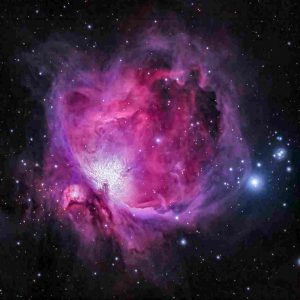Cosmic Choices: Selecting The Right Cosmology Specialisation

Imagine the universe as a giant puzzle, and you’re the cosmic detective trying to solve it. But this puzzle is so massive and complex that you can’t tackle it all at once. That’s where specialisations in cosmology come in. It’s like becoming a space detective who focuses on one specific part of the cosmic puzzle. For example, some space detectives study galaxies – those huge groups of stars and planets. They want to know how galaxies form and why they sometimes collide. Others might zoom in even further and study stars, or they might look at the mysterious dark matter that’s invisible but makes up a lot of the universe. So, picking the right specialisation is like picking which piece of the cosmic puzzle you want to solve. It’s about finding the part of the universe that sparks your curiosity the most and becoming an expert in that cosmic field.
Why Specialisation Matters
Before we delve into the exciting world of cosmology specialisations, let’s talk about why choosing the right one is essential. Think of cosmology as a massive galaxy, and specialisations as the unique stars within it. Each specialisation focuses on a particular aspect of the universe, allowing you to explore your cosmic interests more deeply.
- Personal Passion: Picking the right specialisation aligns with your passions and interests, making your journey in cosmology an enjoyable and fulfilling one.
- Career Opportunities: Different specialisations can lead to various career paths. By choosing wisely, you can pave the way for a successful and satisfying career in the field.
- Contributions to Knowledge: Specialisations enable you to make meaningful contributions to our understanding of the universe. Your research can help solve cosmic mysteries!
The demand for cosmologists in India is growing rapidly. India has a number of world-class astronomy and astrophysics research institutions, such as the Indian Institute of Astrophysics, the Aryabhatta Research Institute of Observational Sciences, and the Inter-University Centre for Astronomy and Astrophysics. These institutions are conducting cutting-edge research in cosmology, and they are always looking for talented and motivated students and postdocs. In addition to academia, there are also a number of opportunities for cosmologists in India in the government and private sectors. For example, the Indian Space Research Organisation (ISRO) is involved in a number of cosmology-related missions, such as the Chandrayaan-3 lunar mission.
Exploring Cosmic Specialisations
Now, let’s take a guided tour through some of the most captivating cosmology specialisations:
Astrophysics: Unveiling The Secrets Of Celestial Objects
Astrophysics is like the glittering jewel in the cosmic crown. It focuses on the study of celestial objects such as stars, galaxies, and black holes. If you’re passionate about understanding the birth, life, and death of these cosmic entities, astrophysics is your gateway.
- Research Focus: Astrophysics primarily deals with the study of celestial objects, including stars, galaxies, and black holes.
- Employment: Astrophysicists can find employment in various sectors, including academia, research institutions, space agencies, and observatories.
Some of the top colleges in India that offer astrophysics programs include the Indian Institute of Astrophysics, Bangalore, and the Aryabhatta Research Institute of Observational Sciences, Nainital.
Theoretical Cosmology: Crafting Cosmic Theories
Do you find yourself pondering over the theoretical underpinnings of the universe? Theoretical cosmology may be your calling. This specialisation involves developing mathematical models and theories to explain cosmic phenomena like the Big Bang and dark matter.
- Research Focus: Theoretical cosmology involves developing mathematical models and theories to explain cosmic phenomena like the Big Bang and dark matter.
- Funding: Theoretical cosmology research often receives significant funding from both public and private sources, making it well-supported.
- Publication Impact: Leading theoretical cosmologists tend to publish groundbreaking papers, and their work frequently receives high citation rates.
- Collaborations: Theoretical cosmologists often collaborate with physicists, mathematicians, and astronomers to develop and refine cosmic theories.
Some of the top colleges in India that offer theoretical cosmology programs include the Indian Institute of Science, Bangalore, and the Inter-University Centre for Astronomy and Astrophysics, Pune.
Observational Cosmology: Peering Through Cosmic Telescopes
If you’re more hands-on and love gazing through telescopes, observational cosmology is a thrilling choice. It involves collecting and analysing data from telescopes and other instruments to unravel cosmic mysteries.
- Research Focus: Observational cosmology revolves around collecting and analysing data from telescopes and instruments to study the universe.
- Observatories: Worldwide, there are over 600 professional observatories and dozens of space-based observatories, providing ample opportunities for observational astronomers.
- Data Volume: The Large Synoptic Survey Telescope (LSST) is said to generate 20 terabytes of data per night, offering extensive research potential.
- International Collaboration: Many observational cosmology projects involve international collaborations, fostering a global community of astronomers.
Some of the top colleges in India that offer observational cosmology programs include the Indian Institute of Astrophysics, Bangalore, and the Aryabhatta Research Institute of Observational Sciences, Nainital.
Particle Astrophysics: Probing The Tiniest Cosmic Particles
Particle astrophysics zooms in on the smallest constituents of the universe—subatomic particles. This field explores how particles like neutrinos and cosmic rays interact with cosmic environments.
- Research Focus: Particle astrophysics explores the interactions of subatomic particles, such as neutrinos and cosmic rays, with cosmic environments.
- Particle Detectors: The IceCube Neutrino Observatory, located at the South Pole, consists of 5,160 basketball-sized optical sensors and provides vital data for particle astrophysics.
- International Efforts: Particle astrophysics experiments often involve global collaborations, drawing expertise and resources from multiple countries.
- Emerging Fields: This specialisation is witnessing significant growth due to advancements in particle physics and cosmic-ray research.
This is an emerging field with significant growth potential, with good career opportunities in academia and research institutions. Some of the top colleges in India that offer particle astrophysics programs include the Tata Institute of Fundamental Research, Mumbai, and the Inter-University Centre for Astronomy and Astrophysics, Pune.
Cosmological Computing: The Power Of Cosmic Simulations
In our digital age, cosmological computing plays a pivotal role. It involves creating complex computer simulations to model and understand cosmic phenomena, making it a fascinating choice for tech-savvy cosmologists.
- Research Focus: Cosmological computing specialises in creating complex computer simulations to model and understand cosmic phenomena.
- Supercomputing: High-performance computing facilities, such as the Swiss National Supercomputing Centre and the Oak Ridge Leadership Computing Facility, play a crucial role in this field.
- Simulation Scale: Simulations can span billions of years and cover vast regions of the universe, providing insights into the cosmos on unprecedented scales.
- Interdisciplinary Nature: Cosmological computing often involves collaboration with experts in computer science, physics, and mathematics.
It is a tech-savvy specialisation with excellent career opportunities in academia, research institutions, and tech companies. Some of the top colleges in India that offer cosmological computing programs include the Indian Institute of Technology, Bombay, and the Inter-University Centre for Astronomy and Astrophysics, Pune.
Dark Matter And Dark Energy Research: Chasing Cosmic Shadows
Dark matter and dark energy make up a significant portion of the universe, yet they remain enigmatic. Specialising in this field allows you to contribute to solving one of the most profound mysteries in cosmology.
- Research Focus: This specialisation is dedicated to unravelling the mysteries of dark matter and dark energy, which together constitute about 95% of the universe.
- Observations: Numerous experiments, such as the Large Hadron Collider (LHC) and the Dark Energy Survey (DES), are dedicated to studying these enigmatic cosmic components.
- Career Opportunities: Specialising in dark matter and dark energy research can lead to positions in prestigious institutions and collaborations with renowned scientists.
This specialisation is in high demand, with excellent career opportunities in prestigious institutions and collaborations with renowned scientists. Some of the top colleges in India that offer dark matter and dark energy research programs include the Indian Institute of Astrophysics, Bangalore, and the Inter-University Centre for Astronomy and Astrophysics, Pune.
Overall, the demand for cosmologists in India is growing rapidly, and there are a number of opportunities available in academia, research institutions, government, and the private sector. The payscale for cosmologists is also good, with experienced cosmologists earning up to ₹1,00,000 per month. The future of cosmology is very bright, as the field is constantly evolving and new discoveries are being made all the time. Cosmologists
How To Choose Your Cosmology Specialisation
Now that we’ve introduced you to the dazzling array of specialisations, it’s time to help you choose the perfect cosmic path.
- Hands-On Experience: Get involved in hands-on experiences. Attend workshops, join astronomy clubs, or participate in research projects if possible. This practical exposure can provide a real sense of what each specialisation entails.
- Connect with Peers: Connect with fellow students who have already chosen their specialisations. Discuss their experiences and ask about the challenges and rewards of their chosen paths. Hearing firsthand accounts can be illuminating.
- Online Courses and Resources: Explore online courses and resources specific to each specialisation. Platforms like Coursera, edX, or MIT OpenCourseWare offer free or affordable courses. Completing a few modules can give you a taste of what to expect.
Mentoria: Your Cosmic Companion
Choosing the right specialisation in cosmology is a crucial decision that can shape your career and passion for understanding the universe. As you navigate this cosmic journey, remember that the cosmos is vast, and there are countless avenues to explore. The key is to align your choice with your interests, strengths, and the questions about the universe that ignite your curiosity.
When embarking on the path of cosmological specialisation, consider seeking guidance from mentors and experts in the field. Mentoria, with its team of seasoned cosmologists and astronomers, can be your cosmic companion. Our mentors provide personalised advice, share their experiences, and offer insights into the diverse branches of cosmology. Whether you’re interested in dark matter, black holes, or the cosmic microwave background, Mentoria can help you chart a course tailored to your aspirations.









